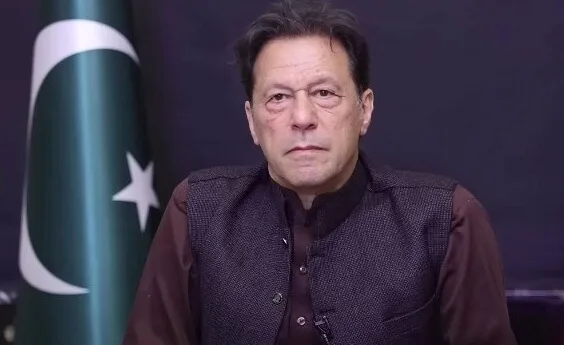Former Prime Minister and his wife face new charges in the Toshakhana case, dashing hopes for immediate release
In a dramatic turn of events, Pakistan’s accountability court has approved an eight-day physical remand for Imran Khan, the founder of the Pakistan Tehreek-e-Insaf (PTI), and his wife, Bushra Bibi. This decision follows their recent arrest by the National Accountability Bureau (NAB) in connection with a new Toshakhana reference. The couple’s reappearance is scheduled for July 22.
Just a day earlier, Khan and Bibi celebrated a victory in the Iddat case when a sessions court acquitted them, moments after the Supreme Court ruled favorably for PTI regarding reserved seats. Despite this brief respite, their hopes for freedom were quickly dashed when NAB detained them again under allegations of misappropriating a valuable jewellery set worth Rs75 million from the Toshakhana.
Judge Muhammad Ali Warraich presided over the hearing at Adiala Jail, where NAB Deputy Director Mohsin Haroon requested the remand. Initially granted a six-day remand, the court extended it to eight days following a plea from Khan’s lawyer, Chaudhry Zaheer Abbas. Both Khan and Bushra Bibi will remain in custody throughout this period.
The accusations against them centre around the alleged purchase and subsequent sale of a luxury jewellery set from the Toshakhana, which has raised eyebrows amid ongoing scrutiny of their financial dealings.
Analysis:
Political: This recent arrest of Imran Khan and Bushra Bibi highlights the ongoing political instability in Pakistan. With Khan’s government having previously faced multiple challenges, these developments may further complicate the political landscape as the PTI navigates the repercussions of these allegations. The NAB’s actions indicate a possible crackdown on former leaders, raising questions about the fairness of the political process.
Social: The situation reflects a deeper societal division within Pakistan. Khan’s supporters view these arrests as politically motivated, while opponents argue they are necessary for accountability. This dichotomy underscores the polarized nature of Pakistani society, where political allegiance significantly influences public opinion.
Racial: Although the current events are primarily political, they also intersect with ethnic and regional identities within Pakistan. Disparities in how different groups perceive the accountability of leaders often align with broader ethnic tensions, impacting how these allegations are interpreted across the nation.
Gender: The involvement of Bushra Bibi in the charges raises issues related to gender dynamics in Pakistan. As a prominent female figure in a male-dominated political landscape, her treatment may reflect broader societal attitudes towards women in power. This case could influence perceptions of women in leadership roles within the country.
Economic: The allegations concerning misuse of state resources underscore the ongoing challenges of corruption in Pakistan. The Toshakhana case, centred around valuable state gifts, highlights how financial misconduct among leaders can erode public trust and impact economic stability. Such cases are crucial in a country striving for reform and economic growth.
